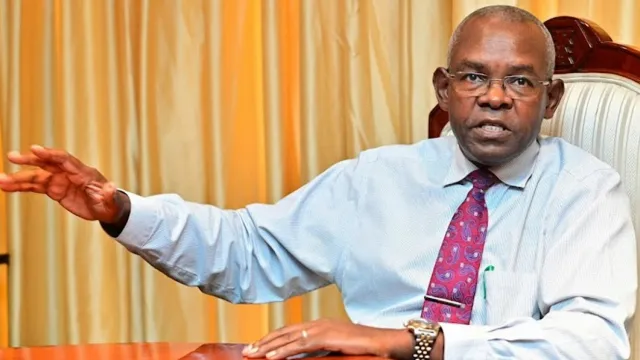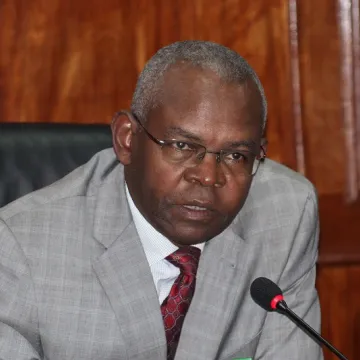Banks must do more to lower loan costs — CBK

Dr. Kamau Thugge, Chairman, the Monetary Policy Committee (MPC) and Governor, Central Bank of Kenya.
Bankers have been challenged by the industry regulator, the Central Bank of Kenya (CBK), to take decisive steps to lower the cost of loans to help spur credit growth and, therefore, stimulate the ailing economy.
In a statement released after the Monetary Policy Committee's (MPC) last meeting of this year held on December 5, the CBK appeared to take issue with banks' slow pace in ensuring that borrowers access loans at an affordable rate.
"The Committee observed that short-term rates on government securities had declined sharply in line with the Central Bank Rate (CBR), but that banks had not responded by lowering their rates proportionately," the policymakers noted.
"The MPC, therefore, urges the banks to take necessary steps to lower their lending rates, in order to stimulate credit to the private sector, and thereby stimulate more economic activity."
During their last meeting this year, which came at a time when the industry is experiencing declining uptake in loans and rising defaults, the MPC decided to lower the Central Bank Rate from 12 percent to 11.25 percent. This was the third time this year that the CBK lowered the base lending rate.
Last week, lenders through their industry association the Kenya Bankers Association (KBA) lobbied the MPC to consider lowering the CBR drastically to incentivize the banks to advance credit to borrowers. At the same time, they argued, such a move would help stem the tide of non-performing loans currently hurting the banking industry.
"The MPC will closely monitor the impact of the policy measures as well as developments in the global and domestic economy and stands ready to take further action as necessary in line with its mandate," Dr. Kamau Thugge, Chairman, MPC noted in his briefing.
CBK observed that the ratio of gross non-performing loans to gross loans stood at 16.5 percent in October 2024 compared to 16.7 percent in August. "Decreases in NPLs were noted in the manufacturing, energy and water, financial services, and agriculture sectors," CBK stated.
At the same time, the apex bank said loans to the private sector remained flat in October in comparison to the corresponding month in 2023, 'reflecting exchange rate valuation effects on foreign currency denominated loans following the appreciation of the Shilling."
High lending interest rates
Notably, CBK agreed that the lack of growth in the uptake of credit by the private sector players was attributable to "reduced demand attributed to high lending interest rates."
The bankers, in a November survey, which they used as a basis to seek lowering of the CBR, they cited high interest rates and continued failure by the government to pay up pending bills are key factors fueling rise in defaults and poor appetite for loans in the industry.
"The housing market, as measured by the Kenya Bankers Association Housing Price Index, mirrors these dynamics, with the recent data indicating subdued growth in housing prices, highlighting weaker demand linked to restricted credit access and diminished consumer purchasing power," KBA stated in an industry survey dated Saturday, 30th November 2024.
CBK noted that in October, while foreign currency-denominated loans, which account for 26 percent of total loans, contracted by 11.8 percent, local currency-denominated loans grew at 4 percent.
The impact of slow loan growth and piling defaults appeared to have negatively impacted the economy with the CBK noting that the economy decelerated in the first six months to June 2024.
Data shows that real GDP growth averaged 4.8 percent compared to 5.5 percent registered in the comparable half in 2023. "This slowdown mainly reflected deterioration in growth in most sectors of the economy."
This year, policymakers project that Kenya's economy will grow at 5.1 percent and 5.5 percent next year mainly powered by the "resilience of key service sectors and agriculture."





